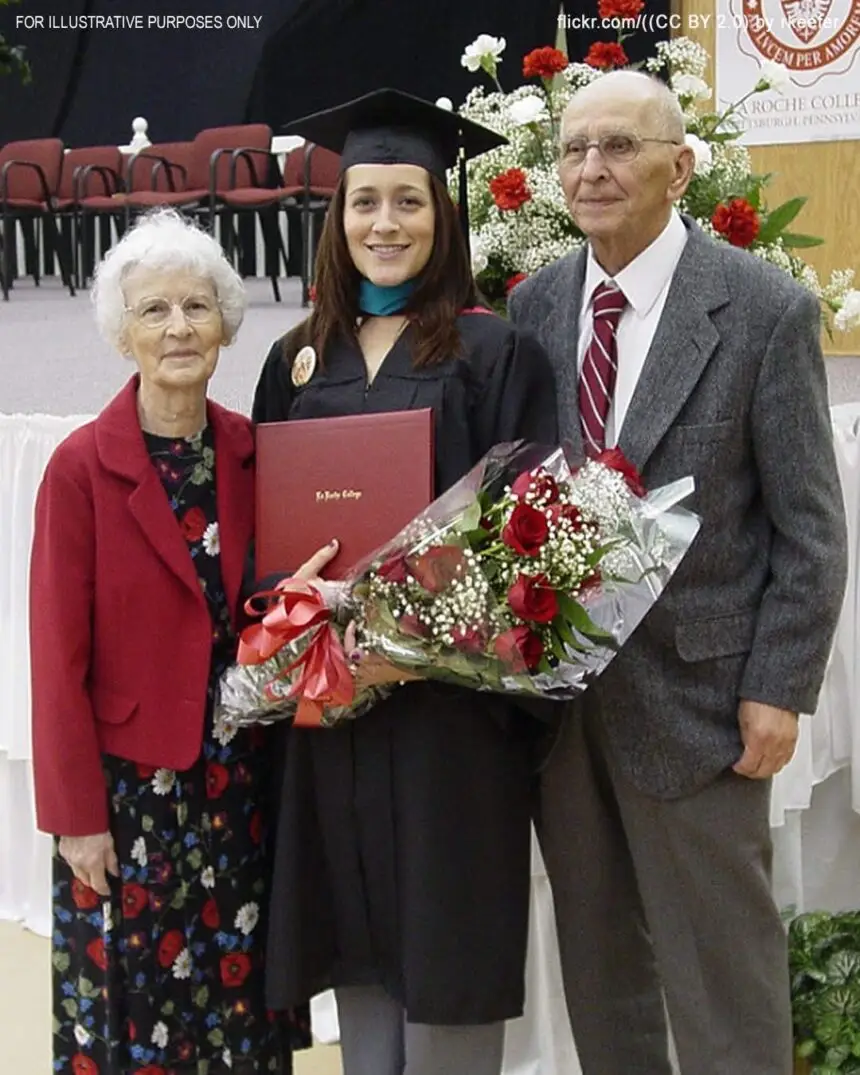As the weight of my grandparents’ prejudice settled over me like a suffocating blanket, I found myself stumbling in disbelief and despair. How could the people who raised me with such love and acceptance bear such old-fashioned views? It was a bitter pill to swallow!
I attempted to reason with them, delve into the depths of their biases, and unearth the root cause of their disrespect. Yet, their beliefs remained stubbornly rooted in stereotypes that bore no resemblance to the man I loved. It was as if they were blinded by preconceived notions, unable to see beyond the color of his skin to the richness of his character.
What puzzled me even more was the stark contradiction within my own family. My late mother, who was of Asian descent, had been embraced by my paternal grandparents with open arms and warm hearts. They adored her as if she were their own daughter, fostering a bond that transcended cultural differences.
And yet, when faced with my fiancé, they pull back in prejudice, casting aside the values of acceptance they had once held dear. As I grappled with the tumultuous emotions swirling within me, I couldn’t help but feel torn. On one hand, I was fiercely loyal to my grandparents, indebted to them for the love and care they had showered upon me.
Yet, on the other hand, I couldn’t ignore the injustice of their prejudice, and the cruelty of their narrow-mindedness. And then there was Sam; he knew of my grandparents’ lukewarm reception, but he attributed it to the usual apprehension one might expect when meeting the parents. He had no idea that the color of his skin was the source of their disdain, and I struggled with the burden of keeping that truth from him.
Caught between loyalty to my family and loyalty to my heart, I found myself at a crossroads. I longed for a solution, a way to bridge the gap between the two worlds that threatened to tear me apart. My friends, my steadfast allies in this turbulent journey, offered their unwavering support.
“They don’t get to dictate what you do with your life,” they proclaimed. “Tell them to either accept it or you’ll cut them off permanently; just cut them off, they’re toxic people,” they advised. Their words echoed in my mind, a rallying cry for independence and self-determination.
Yet, even as I clung to their counsel, a part of me hesitated. The thought of cutting ties with my grandparents, of turning my back on the only family I had ever known, filled me with a profound sense of loss. But as the days turned into nights, and the weight of their prejudice bore down upon me, I realized that I could no longer ignore the truth.
My grandparents’ love, while once unconditional, now came with strings attached, strings that threatened to strangle the very essence of who I was. In the end, it was love that prevailed. Love for Sam, whose unwavering support and boundless affection gave me the strength to stand up against injustice.
I finally gathered the courage to tell him the reason behind my grandparents’ behavior, his reaction surprised me. I couldn’t help but wonder how he managed to maintain such composure. “How are you taking this so well?” I asked, my voice trembling slightly with emotion.
Sam offered me a reassuring smile, his eyes reflecting a depth of understanding that I hadn’t anticipated. “I’ve been through something similar before,” he replied, his tone steady and composed. He proceeded to recount the story of his cousin’s journey, a tale marked by struggle, prejudice, and ultimately, acceptance.
His cousin had bravely come out as gay several years prior, only to be met with opposition from his own grandparents. “They refused to acknowledge the fact that he was gay,” Sam explained, his words tinged with a hint of sadness. “They said some pretty hurtful stuff, you know?
Stuff about how his homosexuality would embarrass them in front of all their family and friends.”
I listened intently as Sam painted a vivid picture of the discrimination and rejection his cousin had endured. It was a narrative all too familiar, resonating deeply with my own experiences of prejudice and intolerance. But then, Sam’s voice softened, and he reached for his phone, scrolling through a series of photos with a sense of determination.
He showed me images of his grandparents, their faces illuminated with genuine warmth as they embraced his cousin’s husband, laughing and smiling in a display of familial unity. “They eventually grew out of it,” Sam continued, his gaze lingering on the snapshots of acceptance and love. “As they got to know him, they really bonded with the guy.”
At that moment, as I bore witness to the transformative power of love and understanding, I felt a glimmer of hope flicker to life within me.
Perhaps, I realized, my own grandparents were capable of change, of transcending the barriers of prejudice and embracing the diversity of the world around them. As Sam’s story unfolded, I found myself filled with a renewed sense of determination. If his grandparents could evolve beyond their initial intolerance, surely there was hope for mine as well.
With Sam by my side, I made the bold decision to confront my grandparents, not with anger or resentment, but with the unwavering certainty of someone who knows their worth. And if they could not accept the love that Sam and I shared, then perhaps it was time to bid them farewell, to forge a new path forward. One Saturday morning, I sat them down and laid bare my grievances, stressing the profound impact their disapproval had on my relationship with Sam.
Their initial reaction was one of defensiveness, but as I stood firm in my convictions, their defenses began to crumble, yielding to a growing sense of remorse. In a moment of rare vulnerability, my grandparents offered a heartfelt apology, their words injected with a sincerity that echoed through the room. It was a pivotal moment of reckoning and redemption, as we collectively acknowledged the wounds inflicted by prejudice and pledged to embark on a journey of reconciliation and healing.
In the days that followed, I observed a profound transformation taking root within the walls of my grandparents’ home. Every evening, Sam and I would gather for dinner, and with each passing day, I noticed my grandparents growing more at ease in his presence, their worries giving way to genuine warmth and acceptance. A special moment came when Sam arrived late one evening, his absence casting a temporary pall over the dinner table.
Sensing the disappointment etched upon my grandparents’ faces, I watched as they eagerly inquired about his whereabouts, their concern, and anticipation palpable in the air. And then, in a gesture that spoke volumes, they declared that dinner would not commence until Sam had arrived, a testament to the newfound bond blossoming between them. Days after that fateful evening, my grandparents approached Sam and me, their expressions filled with humility and remorse.
In a poignant display of vulnerability, they confessed to Sam the depth of their regret, acknowledging the pain and injustice they had inflicted upon him due to the color of his skin. In that moment, as Sam stood before them with grace and dignity, I witnessed the transformative power of compassion and understanding. Source: amomama







